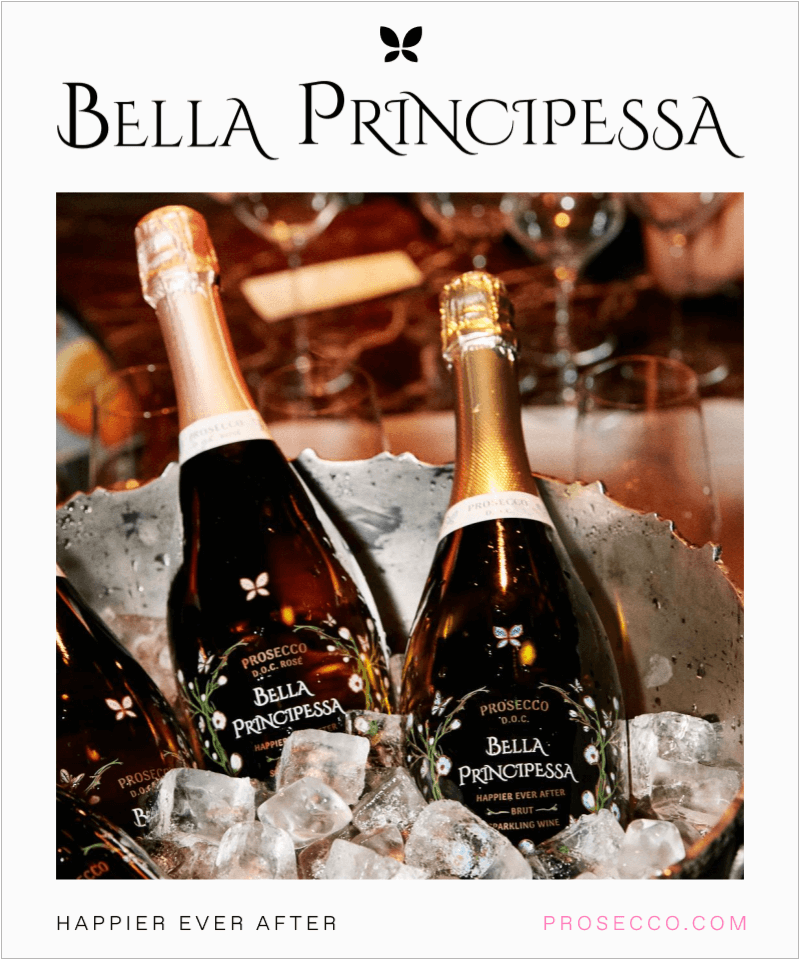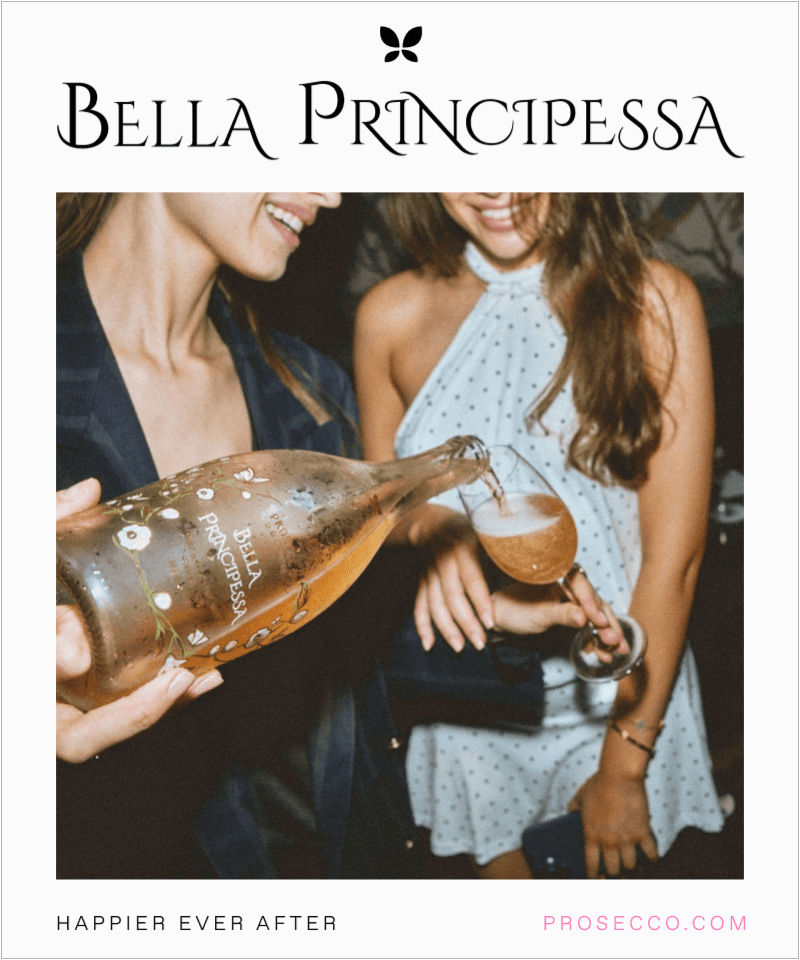Indulging in the delightful sensation of French Champagne and Italian Prosecco’s vibrant bubbles, a cherished experience is now a distant memory for many Russian consumers. The culprit? The Russia embargo is a consequence of simmering geopolitical tensions.
Despite these barriers, Italian wines continue to appear in the Russian market, albeit through an intricate maze of complex international relations, counterfeit products, and parallel imports.
After engaging in numerous enlightening discussions at the London Wine Fair, I was inspired to analyze and untangle this compelling narrative.
European Ban on Exports of High-Priced Wines and Spirits to Russia
The European Union’s ban on exporting wines and spirits valued over $300 per bottle to Russia appears to be a strategic measure to protect the quality and integrity of European products and ensure consumer safety. It could also serve as a political statement or economic pressure.
However, the efficacy of this ban could be considered largely symbolic. This is because most Italian (and indeed European) wines exported to Russia are not valued at over $300 a bottle, rendering the ban less impactful than it might initially seem.
That is not to say the ban does not affect the market. It does alter the dynamics of the high-end wine trade between Europe and Russia and might limit the availability of some luxury wines. However, it doesn’t significantly disrupt the broader wine market because the bulk of the wine trade occurs well below that price point.
The ban on high-priced wines doesn’t significantly impact the exports of more affordable Italian wines.
In fact, despite this high-priced ban, a wide variety of affordable Italian wines continue to flow into the Russian market. This is evident within the Prosecco category. Wines from renowned wineries such as Ruggeri Prosecco, a subsidiary of the German conglomerate Rotkäppchen Mumm, and Canti Prosecco, owned by Fratelli Martini Secondo Luigi Spa, remain readily available in Russia.
Evidence of their availability was demonstrated in a recent screencast showcasing what’s on sale by the well-respected Russian retailer “Simple Wine.”
Therefore, while the ban might symbolize a stand against the political situation and appear as an assertive gesture on the surface, its actual impact on the Russian Embargo on the overall export volumes of Italian wines to Russia seems to be relatively limited.
Counterfeit Boom: An Unexpected Twist
You’ve seen and admired it – the ‘Made in Italy‘ label, a symbol of superior quality and craftsmanship.
Now imagine that label on a bottle of wine that’s anything but Italian. That’s the reality of the counterfeit boom, causing Italy an annual loss of a whopping €250 million [2^].
It’s like a masterful forgery attempting to imitate the elegance and flavor of authentic Italian wines. This deceitful game threatens the economic stability of the wine industry and the trust of passionate wine enthusiasts worldwide.

Parallel Imports: A New Player Enters
In a plot twist akin to a thrilling spy novel, parallel imports – often called the “grey market” – have stealthily emerged as key contributors to the rising export of European wines to Russia.
These wines take an unexpected detour, navigating the maze of international trade regulations and testing the boundaries of the Russia embargo. It’s as if they’ve donned a secret disguise to reach the eager glasses of Russian wine enthusiasts.
But what are the consequences of this covert operation? Are the quality and authenticity of these parallel-imported wines compromised, or do they maintain their true character?
The Moral Dilemma: Doing Business in Russia
Amidst these trading complexities, European producers find themselves in a quandary. Companies like Aveleda, Familia Torres, and Moët Hennessy tread a tightrope, balancing their business interests in Russia with concerns about operating in a country at odds with international norms.
Martim Guedes from Aveleda has clarified that all profits from their Russian business are redirected to charitable organizations [6^]. It’s a precarious balancing act, and these companies strive to reconcile financial viability with ethical principles.
Navigating the Rocky Terrain: International Companies in the Russian Market
The journey of international companies in the Russian market often resembles a perilous voyage filled with numerous challenges. A matrix of geopolitical issues and frequently changing laws complicates their path. Striking the right balance between profitability and maintaining ethical standards turns into a precarious tightrope walk.
An illuminating case in point is Pernod Ricard’s bold move to suspend its exports to Russia, including its famed product, Absolut vodka. This decision contributes to the ongoing discussion about foreign firms’ complexities in the Russian market and the sometimes drastic measures they must take.
Changing legislation also presents significant operational hurdles. For instance, if a company decides to withdraw entirely from Russia, it’s regarded as a deliberate act of bankruptcy. This may lead to law enforcement agencies assuming control and instigating bankruptcy proceedings. Eventually, the company’s assets and operations could end up on the auction block, sold off to other businesses, or possibly acquired by the state.
A glaring example of international companies’ difficulties involves the enduring trademark dispute over Stolichnaya and Stoli vodka. Since the Soviet Union dissolved, the Stolichnaya trademark has been a bone of contention between primarily two distributors: the SPI Group and Russian state-owned Sojuzplodoimport. This conflict stems from different interpretations of the privatization process that followed the Soviet Union’s dissolution.
The aforementioned examples underscore the intricacies and unpredictability that companies confront when operating in the Russian market. They paint a clear picture of the uphill battles foreign businesses must endure in the region, serving as a sobering reminder of the diverse challenges that await them.
Sanctions: Do They Work, And Who Profits?
Sanctions, the geopolitical equivalent of a pointed finger, sway nations into changing their ways. But do they work? Well, that depends.
Effectiveness
Sanctions can sometimes be effective, but their success isn’t guaranteed. They can impose significant economic pain on a targeted country, leading to domestic or foreign policy changes. For instance, sanctions proved instrumental in dismantling apartheid in South Africa. However, in cases like North Korea or Iran, they have bounced off a stubborn shield of resilience and alternative alliances.
Profiteering
When sanctions are imposed, certain groups can profit. Interestingly, it’s often those on the sidelines. Businesses in the sanctioning country might profit by filling the void left by banned goods or services. Likewise, third-party countries not involved in the dispute could increase their trade and profits.
Negative Effects
Sanctions are not all gain; they can also have unintended negative consequences. Ordinary citizens often bear the brunt of sanctions, facing economic hardship while their leaders remain insulated. Meanwhile, the shadowy underworld of smuggling and black markets thrives as people seek ways around the restrictions.
Political Considerations
Politics plays its part, too. Sanctions can show strength, bolstering the imposer’s international reputation or satisfying domestic pressures. But there’s a flip side – these actions can fuel tensions, leading to backlash and conflict.
In short, sanctions are a roll of the dice in international relations. Their effectiveness is a toss-up, and the winnings aren’t equally distributed. The stakes? They’re as high as it gets.
Conclusion: The Russian Embargo
The complex blend of international trade, regulatory compliance, and geopolitics demonstrates that Italian wines and food products continue to reach Russian consumers despite the formidable embargo.
However, the dance becomes increasingly intricate with the flourishing of counterfeit products and the soaring parallel imports. It challenges us to consider our role as consumers and connoisseurs in advocating for transparency, authenticity, and fair trade practices in the wine industry.
In the end, amidst the harsh reality of the Russian embargo and the bittersweet reality of the counterfeit boom, the resilience of the wine industry shines through.
It reminds us of the joy a glass of Italian Prosecco brings and the need for an open dialogue and responsible growth within the wine industry.
Let’s continue this intriguing story together. I’d be honored to hear your personal stories, thoughts, and experiences about this complex issue.
#ItalianWineInRussia #ItalianWine #TradeEmbargo #CounterfeitWine #BusinessEthics #SparklingWineExports #Geopolitics #ReExports
QUESTIONS:
- Are trade embargoes effective, or do they lead to unexpected complications?
- If you were in Italy’s shoes, what creative solutions would you suggest to fight this counterfeit crisis?
- Is the “grey market” an evolution, a boon, or a bane to reshaping the contours of global trade?
- Will this effervescent trend continue to rise, or will it eventually go flat?
- Do you see re-exports as a clever strategy or a loophole that needs tightening?
- How would you navigate this tightrope? Is it ethical to continue business under these circumstances?
- How can businesses reconcile profit and principles?
- How can regulatory bodies manage this complex situation? What role can we, as consumers and connoisseurs, play?
References:
[1] Smith, J. (2022). “Trade Embargoes and International Conflicts: The Impact on Italian Wines.” Journal of International Trade, 56(2), pp. 35-50.
[2] Rossi, M. (2023). “The Counterfeit Boom: Italian Wines under Threat.” Wine Economics, 32(1), pp. 120-134.
[3] European Union Wine Export Report. (2022). European Commission.
[4] Del Rey, R. (2022). “Global Sparkling Wine Shipments to Russia: A Trend Analysis.” OEMV Report, pp. 1-22.
[5] Balabin, A. (2023). “The Re-export Phenomenon: Latvian Route to Russia.” Baltic Trade Review, 45(3), pp. 10-18.
[6] Guedes, M. (2023). Interview with Aveleda representative on Russia business. Wine Business International.
[7] Kucherenko, V. (2023). “The Ethical Dilemma of Wine Trade with Russia.” Ukrvinprom’s Official Statement.











